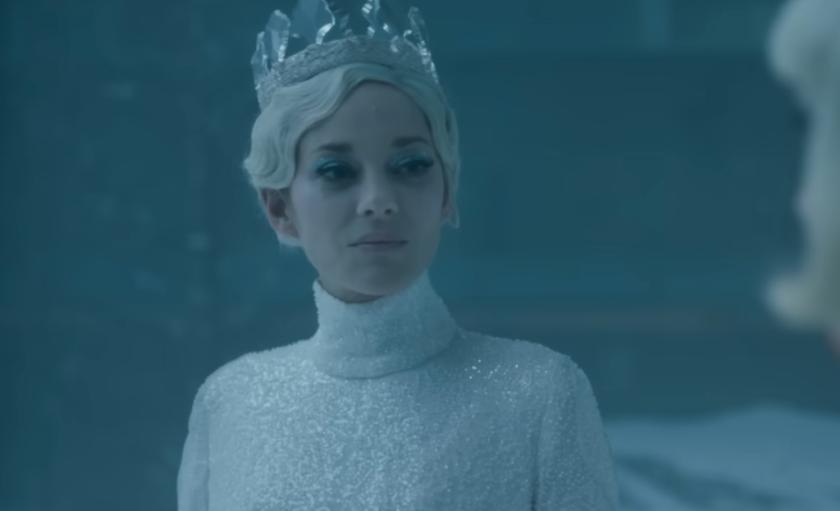Seemingly shot in a snow globe containing haunted mountains and a neo-noirish Alpine ‘burg, The Ice Tower is the most expressionistic but relatable of the French-Bosnian director Lucile Hadžihalilović’s eerie oneiric fables involving endangered motherless children.
It’s also the prettiest and the queasiest, a glittering alt-Gothic showcase for Marion Cotillard as a toxic lynx-eyed movie diva. The long-damaged Cristina van der Berg, who as a girl was objectified and unhappily groomed for stardom, preys on the smitten adolescent orphan Jeanne (stealthy newcomer Clara Pacini) while acting – and acting out – during a production of The Snow Queen, Hans Christian Andersen’s fable about the psychological effects of emotional permafrost.
Hadžihalilović’s fourth full-length movie (her third with co-writer Geoff Cox) is set in the 1970s when giallos caught her imagination. The Ice Tower draws less from Deep Red and Blood and Black Lace, however, than The Red Shoes (itself Andersen-derived) and Black Narcissus. The climactic death plunges in those Powell and Pressburger psych-melodramas of morbid obsessing anticipate the terrifying moment when Cristina leads Jeanne to the edge of a precipice.
Like all of Hadžihalilović’s mature films, The Ice Tower prioritises meticulously composed, mystically charged images over exposition, conjuring the painterliness of great silent cinema. Yet The Ice Tower’s predation theme subtly carries it into Tàr territory. Corruption of the young and maternal loss or absence are Hadžihalilović hallmarks, familiar from Innocence (2004), Evolution (2015), Earwig (2021), her atypically realistic 52-minute La Bouche de Jean Pierre (1996), and implicit in the short De Natura (2018).
Violation threatens Jeanne, a small orphanage’s eldest inmate, early on. The avid Snow Queen reader takes a dangerous evening trek into the snowladen foothills and gazes at the peaks, as if yearning for the Queen to materialise. Given a lift back to town by a would-be molester, she bolts from his car and takes refuge for the night in a desolate building that turns out to be the space where The Snow Queen’s director (played by New French Extremity auteur Gaspar Noé, Hadžihalilović’s partner) is shooting his Andersen film's interiors.
Concealed in her hideout, Jeanne spies on the petulant Cristina in her makeshift dressing room, where she dons the Snow Queen’s spangled white gown and crown of ice and blisses out on the heroin supplied by her “doctor” friend Max (August Diehl). Jeanne is glimpsed in turn by Cristina, who will charitably call her a rat for lurking in dark corners.
Anything can happen in a fairy tale with its dream logic. Jeanne – who has renamed herself Bianca, after a girl skater who dazzled her at the local rink – contrives to be cast as one of the Snow Queen’s elf maidens. During filming, she wills a trained crow to bloody the head maiden (Lilas-Rose Gilberti Poisotso) so that she can replace her and get closer to Cristina. Anyone who recalls the 1960s children’s TV series Tales From Europe – which included a Russian version of The Snow Queen – will appreciate the nightmarish aesthetic of The Ice Tower’s film within the film.
Before they meet, Jeanne rips a crystal drop ornament from the hanging Snow Queen gown while Cristina picks up beads Jeanne took from her mother’s deathbed; they signify her aching need, which Cristina cruelly exploits. The exchange of talismen is the first indication that these women’s growing infatuation with each other is mutual.
It also hints that the eventual battle between them will not be as one-sided as Cristina’s sway over Jeanne suggests. Jeanne is the heroine of her story and, perhaps, its author. Is it “real” or a dream – or a self-psychoanalysing fantasy that she has conjured to liberate herself from trauma and her idealisation of the idol with feet of ice? Hadžihalilović's uncanny cinema allows for all possibilities.















Add comment